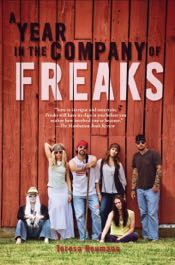I love my family and my life too much to waste it closeted away over an unfinished manuscript, isolated and border-line insane, with my stomach tied in knots over self-imposed deadlines.
Seriously. If the actual writing of a book isn’t taxing enough, the burden of editing, re-writing, re-editing, gathering reviews, format decision making, and marketing is enough to set off an immune system storm.
Which is what exactly what happened to me after the publication of my second book.
Despite Hashimoto’s Disease, I Kept Going for “One More Book”
I was diagnosed with Hashimoto’s thyroiditis. For those unfamiliar with this increasingly common condition in which the body starts producing antibodies against normal thyroid tissue, it’s an autoimmune disease that can be brought on by chronic stress.
The “thyroiditis” aspect basically means that the thyroid gland is inflamed, trying to figure out how to fight it—either by going up (hyper) or down (hypo). As a result it fluctuates between the two until it finally decides where to land—often in the low (hypo) range.
Having your energy and emotions on overdrive one day and crashing into a wall the next is not fun—or conducive to focused writing!
But I decided that life is too short for regrets and I love writing too much not to play with that deliriously addictive creative fire in my belly. Like the mountain climber who’s mastered the world’s highest peak but can’t stop chasing the “rush,” I kept telling myself—despite the challenges—“Just one more book.”
So here I am, a little over a year after the publication of my third novel, A Year in the Company of Freaks, preparing to publish my fourth.
Hashimoto’s be damned.

Writers Have to be Driven and Just a Little Obsessed
We writers are driven and not just a little obsessed, are we not? The fact is, we have to be if we want to get published. But authors, I’ve found, can choose from two kinds of crazy: Smart crazy and reckless crazy.
I used to be reckless crazy. I’d stay up half the night working and then agonize the next day over not being able to sleep. I’d sit at my computer with a bag of chips, a bar of chocolate and endless cups of coffee and feel fatigued all day. I’d succumb to second-guessing myself after my manuscript was submitted for publication, tear my hair out over my lack of marketing skills, and be riddled with self-doubt if I got a less than perfect review of my book.
It took my Hashimoto’s diagnosis and birth of my grandson to finally learn how to be smart crazy. At least, I’m trying to be.
Here’s how I roll now:
As a Writer, I Don’t Lose Sleep Over Losing Sleep
In other words, I still have nights where I wake up fully alert at 2:00 or 3:00 and can’t go back to sleep, but I don’t let it get to me.
Instead, I grab a pillow, a book, and my blanket and head to the living room. I turn on a lamp nearby and start reading as though I’ll be up the rest of the night. The reverse psychology works nearly every time. Before I know it, I’m snoring soundly.
When all is said and done, if it still ends up that I’ve only gotten four hours of sleep—oh, well. Soldier on.
Working Out is an Absolute Priority for Writers
I started working out shortly after the publication of my first book and haven’t looked back. Having originally been a “I’ll Never be a Gym Rat” kind of girl, I have since eaten my words.
Taking the time every day to stretch, walk/run and lift weights has become a natural form of health insurance. It conditions my otherwise sedentary body and helps keep my brain focused and alert.
I’ve upped my routine since my Hashimoto’s diagnosis (and gone on an auto-immune diet from hell) and am thrilled to say I am now in remission. There are several choices in my life that I have never once regretted and working out is definitely one of them.
For Me as a Writer, Family Comes First
When family suffers, you suffer and if you—the writer—feel that you’re failing in this area, that failure can hijack your success.
When I wrote my first book, my children were well on their way to adulthood, so I was able to take advantage of having nearly every day to myself. The problem was, I worked part-time and was also playing fiddle in a band. Being the Type-A personality I am, I made it work and enjoyed the challenges.
Then my first grandchild was born. Because only 80 percent of FULL-TIME writers make enough to live on, I kept my job but gave up paying in a band. I’ve never looked back. Time with my grandchildren is priceless.
At the end of my life I don’t want to face the regret that I didn’t spend enough time with family. I put them first, even if it means postponing publication dates.
Writers, Keep the Carrot In Front of You!
Keeping a “carrot” in front of myself works wonders.
I grew up in a belief system that frowned on self-indulgence and honored self-sacrifice above all (suffering = sainthood) and though I believe selflessness can, indeed, be a virtue, taken to extremes can be unhealthy and even destructive.
So rather than approach my project with a sense of dread and foreboding, I give myself daily incentives. For example, “I’ll work on my manuscript exclusively for three hours this morning, then I’ll watch a movie I’ve been dying to see (or take a bath, or eat a goodie, or go shopping).”
Delayed gratification may not be easy for we Americans, but in France, parents teach their children to wait for many things until the proper time. Oh, to have been raised in France!

Taking Control of My Own Publication was One of the Best Decisions of My Career
Of all the challenges writers face—physical, relational, etc.—it’s the emotional and mental struggles that surely threaten to derail us most. I’m not one to get depressed easily or fall victim to being overwhelmed. I’m too much of a type A, positive-thinking “soldiering on” type, I guess. And I’ve gradually learned how to balance my personal life to accommodate my craft.
But I DO know the soul-deep pain of rejection and self-doubt. Killers, those two.
For example, I spent around eight years trying to pitch my first book at numerous writers’ conferences. I desperately wanted to be traditionally published. I was so close at times—or at least, some compassionate editor would lead me to believe I was—that I continued pursing that avenue of publication.
But after countless rejections, some of them humiliatingly heartless, I turned cynical and quit pitching my book. I couldn’t emotionally handle the snubs and rebuffs anymore.
A mentor who had befriended me at one of the conferences—a successful author and editor—encouraged me to self-publish. Times were changing drastically, she explained, and publishers were more wary than ever of contracting out new, unknown writers. Unless you had a large following or platform from which to pitch your book, or knew somebody in the industry, chances were slim. She also said that many traditionally published authors were going that way because they could retain more rights to their books and reap better royalties.
“Besides,” she concluded, “we pretty much have to market our own books anyway, whether they’re traditionally, or self, published.”
Her words gave me the courage to move forward and turn my life around. Taking control of my own publication was one of the best decisions of my career and I’ve never looked back. It also dealt a death blow to the major source of my fear of rejection.
Don’t Let Self-Doubt Stop You…Even if You Were Born with it
What remains, however, is self-doubt.
The cure to that, I know, is to have a borderline “I don’t care” attitude. Hard when you’re an obsessive writer and self-editor as I am, because I DO care very much about my end product. But the niggling voice that taunts, “You’re a poor writer” or “Your book will fail,” or “Why bother—just give it up” has to be duct-taped shut and there’s no better way of doing that than telling it you don’t care.
“Don’t care. I’m pushing ahead anyway,” I hiss at it. “And you, nor anyone else, can stop me. So there!”
Still, knowing me, the reality is I will likely have to bind this beast many more times in my life. Is there such a thing as being born with self-doubt? If so, I’m a prime example.
Writing IS Wonderful—but It’s Also Extraordinarily Taxing
At the end of the day though, when people wax poetic about how romantic it must be to write novels, I nod in agreement because it IS wonderful and there’s no other occupation I’d rather pursue.
But, like being a mother, it is also extraordinarily taxing on your body and mind. There are days you can’t bear being your own cheerleader or don’t want to be your own taskmaster. Days that no amount of stretching can alleviate the tiredness in your bones. Days you ask yourself why you’re such a glutton for punishment and is it really worth it?
Oh, yes. It is. Most definitely!
* * *
Born into a large Irish-Catholic family in Iowa, Teresa Neumann is the oldest of eight siblings. She attended St. Ambrose University in Davenport before venturing to northern California in the early 1970’s to follow the siren-call of the hippie era (the subject of her third book, A Year in the Company of Freaks).
Today, Teresa and her family live in Oregon’s beautiful Willamette Valley where she works part-time for an on-line health publication, Amazing Health Advances. When not working, penning novels, babysitting her grandchildren and traveling with her family to far-flung locations, she sometimes still plays her fiddle. Married to an Italian-American musician, her first two books—Bianca’s Vineyard and Domenico’s Table—were inspired by his family in Tuscany during WWII.
For more information on Teresa and her work, please see her website, or connect with her on Facebook and Twitter.
 A Year in the Company of Freaks: It’s 1972 and a seismic clash-of-cultures is rattling northern California. In the redneck town of Trinity Springs, rumors of hippies migrating up from San Francisco have residents bracing for an invasion. When Italian-American hometown boy and Berkeley graduate Sid Jackson is busted for growing pot on his deceased parents’ farm, locals suspect the assault has begun.
A Year in the Company of Freaks: It’s 1972 and a seismic clash-of-cultures is rattling northern California. In the redneck town of Trinity Springs, rumors of hippies migrating up from San Francisco have residents bracing for an invasion. When Italian-American hometown boy and Berkeley graduate Sid Jackson is busted for growing pot on his deceased parents’ farm, locals suspect the assault has begun.
Will a crazy deferral program devised by the sheriff keep Sid out of prison? Or will a house full of eccentric strangers, a passionate love interest, and demons from his past be his undoing? A “disarmingly appealing” tale of discrimination, transformation and restoration, Freaks is bursting with intrigue, drama, comic relief and romance. Reviewers agree this five-star, coming-of-age classic “very much reflects the attitude and mood of the times.”
So find a spot to mellow out and enjoy rambunctious 70’s hippie fiction at its best!
Available at Amazon.

